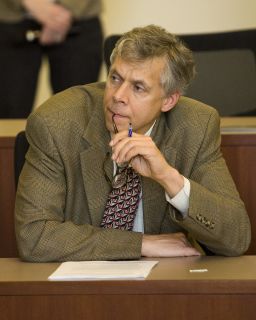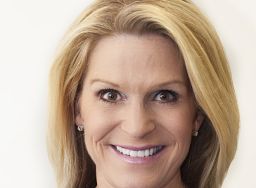CNN Opinion invited commentators to weigh in on President Trump’s speech to Congress Tuesday night. The views expressed are theirs.
Eric Liu: A master of symbols over substance

In his first presidential address to Congress, Donald Trump tonight reminded us that he is a master of symbols over substance. And hereminded us as well that this is a pretty effective formula for success in American politics.
From his opening (if belated) words condemning recent acts of anti-Semitism to his promises to cut two regulations for every new one created to his highlighting the widow of a Navy SEAL, Trump dealt mainly in rhetorical gestures.
But people who criticize Trump for dealing in such gestures and for offering few specifics forget that public leadership depends on symbols. More than that, it depends on setting a simple vision and animating it with symbols and with stories. Like it or not, Trump is good at that.
This speech was his most effective moment as president. It played to his natural strengths – performance and theatricality – while keeping his liabilities, like cynical incuriosity and casual cruelty, at bay. More than that, with talk of infrastructure investment and hints at immigration reform, it showed his willingness to keep both left and right off-balance. It hinted at the trouble Democrats would be in if Trump could ever sustain discipline.
Unfortunately for him, the rest of his job requires him to face the world in its actual complexity – and to deliver. The daily grind of governing will likely reveal tonight’s Trump to be the exception rather than the rule. “The time for trivial fights is behind us,” he said. But shortly afterward, he regained access to his Twitter account.
Eric Liu is founder of Citizen University and executive director of the Aspen Institute Citizenship & American Identity Program. His books include “A Chinaman’s Chance” and “The Gardens of Democracy.” He was a White House speechwriter and policy adviser for President Bill Clinton. Follow him on Twitter: @ericpliu.
Mark Bauerlein: Leaning on themes that got him elected

Trump supporters might have found the pageantry of the lead-up to Donald Trump’s speech a bit much, impatient as they are of DC puffery. But soon after Trump started, the wellsprings of his patriotism fed their profound hunger for national meaning.
It’s a desire that my fellow academics and cosmopolitan elites do not understand. As I was interviewed on CNN International last week, the host insisted that America was doing just fine–low unemployment and strong stock market–so why the talk about American decline? I answered that a nation isn’t measured primarily by money. There is, first, the sense of home and self-esteem and respect for law and order.
Trump invoked those feelings immediately: “American greatness … a new national pride … a renewal of the American spirit.” His administration will resurrect them, he promised, with a “rebirth of home, safety, and opportunity.” This is the opposite of 21st-century liberalism, which doesn’t like any national (or religious) commitment that runs too deep.
In fear of strong convictions, it pushes the minimization of nation, the break-up of American tradition into a breezy multiculturalism, the opening of borders, the conversion of American citizens with roots in a time and place into global citizens with no roots and who should belong everywhere, which is to say, nowhere. Trump’s understanding of this is why he won.
The details in the speech were unsurprising: fewer regulations, less lobbying, less off-shoring of jobs, new trade agreements, border security, repeal of Obamacare, an end to the “cycle of poverty,” a stop to violent crime, the suggestion of opening vouchers to religious schools. As always, the consequences of all these claims remains to be seen.
One thing is certain, though: President Trump stuck to the very themes that have generated so much rancor and heat, and nothing he said or did tonight promises to lower the temperature. When he said that his job is not to “represent the world,” only the USA, the globalists and internationalists and intellectuals suspicious of American power knew their enemy.
Mark Bauerlein is a professor of English at Emory University, senior editor of the journal “First Things” and author of “The Dumbest Generation: How the Digital Age Stupefies Young Americans and Jeopardizes Our Future; Or, Don’t Trust Anyone Under 30.”
Jen Psaki: New tone, but no new clarity

It is safe to say there has been no “joint session” speech in modern televised history that was anticipated with lower expectations. We waited for Donald Trump to invoke American carnage and doom and gloom and instead we got something much closer to a broad and traditional address.
The change in tone, helped by the personal stories in the second half of the speech, was noteworthy–though the glow will only last as long as he maintains the positive tone, which may be a matter of hours.
Also striking was how completely disconnected these remarks were from the speeches and the actions of first five weeks of the Trump Administration.
There were some stark omissions in President Trump’s speech, including any mention of Russia or real specifics on the expected Muslim ban 2.0. And he had some big whoppers, including the statement that 94 million Americans are out of the labor force – a misleading claim at best, as it includes people who are not looking for work
Beyond the news cycle coverage of any joint session speech, the goal of such an address is to give marching orders for the months ahead. But Trump failed to lay out a specific path to achieve his policy objectives. It is just as mathematically impossible today to keep health care coverage for pre-existing conditions, repeal the Obamacare mandate and lower costs as it was yesterday. He did not make any tough choices on how exactly to achieve tax reform where tax cuts to the middle class are not impacted. And he did not present a new strategy for going after ISIL.
The audience is the American people at home, but more than five weeks into the administration it is also the people in the room. They may be relieved by the change in tone (and we will see how long that lasts) but they don’t have any more clarity on his legislative agenda now than they did before the speech.
Jen Psaki, a CNN political commentator and spring fellow at the Georgetown Institute of Politics and Public Service, served as the White House communications director and State Department spokeswoman during the Obama administration.
Kayleigh McEnany: Democrats cool to Trump’s message of unity

President Donald Trump delivered a message for all Americans in his speech to Congress. It was unifying, uplifting, and much needed at a time when America is deeply divided. He began with the message that “we might be a nation divided on policies, but we are a nation that stands united in condemning hatred,” he ended with the message of “we are one people with one destiny. We all bleed the same blood. We all salute the same American flag. And we all are made by the same God.”
His words reflected the American ethos. But, sadly, unifying, benevolent messages like extending treatment for Americans addicted to drugs were met with Democratic recalcitrance, as left-wing elected officials sat firmly planted on one side of the House chamber, where clapping was sparse.
Democratic resistance could not squelch the overriding message of unity, best represented by the emotional moment when Trump saluted Carryn Owens, wife of fallen Navy SEAL Ryan Owens, reminding us that, “the Bible teaches us, there is no greater act of love than to lay down one’s life for one’s friends. Ryan laid down his life for his friends, for his country, and for our freedom — we will never forget him.”
Kayleigh McEnany is a CNN commentator and a graduate of Harvard Law School.
Errol Louis: An olive branch for Democrats?

President Donald Trump delivered what many hoped for: a speech calling for unity with Democrats – a key departure after antagonizing them during his first month in office.
In the very first sentences of his speech, Trump finally condemned anti-Semitic attacks in recent weeks, along with the fatal shooting of an Indian man at a Kansas bar. This was a crucial move from a president who has been dodging acknowledgment of the growing number of hate crimes.
The commander-in-chief’s straightforward presentation was also a departure from his usual bombastic style. Trump stayed cool when Democrats stayed seated as Republicans rose to clap, or gave a thumbs down to his proposed Obamacare repeal. He largely refrained from his habit of rehashing the election and the rise of the coalition that brought him to power.
While Trump seemed to be sending an olive branch to Democrats with his approach Tuesday night, the Republican is going to face problems within his own party when it comes to his budget.
Because Trump has promised not to cut major entitlement programs, his military spending hike is sure to become a tension point with Speaker Paul Ryan, a budget hawk. Without creating a source of revenue to make up for it – Trump has vowed to cut taxes, not raise them – the budget could wind up becoming significantly imbalanced.
Trump might not find a friend in Senate Majority Leader Mitch McConnell, either. The Kentucky Republican said today that the upper chamber would kill Trump’s budget plan – featuring a 37 percent spending cut to the Department of State – if it’s sent to the Senate.
In other words, Trump may have connected with some Democrats, even as a showdown looms with his fellow Republicans.
Errol Lous is the host of “Inside City Hall,” a nightly political show on NY1, a New York all-news channel.
Sahar Aziz: Solidarity with his far-right, anti-Muslim base

Donald Trump prides himself on snubbing political correctness. Thus, he made sure to emphasize that the terrorism he is fighting is “Islamic.”
But in promising not to allow a “beachhead of terrorism to form inside America,” Trump failed to inform the American people that right wing extremists – not Muslims – are the largest domestic terrorists. Since 9/11, twice as many people have been killed by white supremacists than terrorists claiming to be Muslims. Indeed, anti-Muslim hate groups have nearly tripled since 2015. And these white supremacists have been terrorizing Muslims (and other racial minorities) through mosque vandalization, assault, and even murder.
While Trump rightfully acknowledged the rise in hate crimes against Jewish communities, he was resoundingly silent about the rise in attacks and discrimination against American Muslims. Even his mention of the shooting in Kansas City left out that the victims were apparently mistaken for Muslim. Trump’s material omissions demonstrate that he did not have American Muslims in mind when he stated “We are one people, with one destiny. We all bleed the same blood.”
Evidently, Trump is concerned with political correctness more than he admits – the type imposed by his far right, anti-Muslim base.
Sahar Aziz is associate professor at Texas A&M University School of Law, where she teaches national security, civil rights, and Middle East law. She is also a fellow at the Institute for Social Policy and Understanding.
Aaron David Miller: What the President really meant to say

Not surprisingly, foreign policy didn’t figure prominently in the president’s address to the joint session of Congress. But President Trump did lay down several foreign policy markers. Here’s a rundown of what he said in the speech, and what I’m pretty sure he really said about them during the car ride over to the Capitol.
”We will work with our allies, including our friends and allies in the Muslim World, to extinguish this vile enemy ISIS from our planet.” Trump in car: Boy am I really out on a limb on this one; I said in my inaugural that I’d eradicate ISIS from the face of the earth. But how can I do that without eliminating the conditions in Syria and Iraq on which ISIS feeds. And that would mean deep US involvement in nation-building; not only that, the plan the Pentagon has given me is really just a plus up from what Obama been doing.
”We are also taking steps to protect our nation from radical Islamic terrorism.” Trump in car: I don’t care what my new National Security Adviser wants me to say, I’m going to keep on using those three words until the cows come home. It makes me feel good; and I don’t care if it alienates American Muslims here or our so-called Arab allies abroad. And I’m also going to keep repeating things that mislead, as I did tonight by implying that the vast majority of individuals convicted for terrorism-related offenses since 9/11 were from foreign terror groups, when it fact they were either US citizens living here for years or legal permanent residents.
“America is willing to find new friends and to forge new partnerships, where shared interests align.” Trump in car: This was really clever on my part. I didn’t want to mention Russia, let alone Mr. Putin, for obvious reasons; but I really did want to give him a shout out. He’s strong and tough like me; and I know I can cut deal with him.
“My job is not to represent the world, my job is to represent the United States of America.” Trump in car: Boy do I love that line. To all you liberal interventionists and neocons who somehow think I belong to the “US as the indispensable power” club, think again. No more globaloney. It’s America first. I’m looking out for number one. And you know who that is.
Alice Stewart: Trump in charge

A lengthy standing ovation honoring American hero Ryan Owens and led by Donald Trump allowed him to demonstrate, beyond a shadow of a doubt, that he is President and Commander in Chief for all Americans- no ifs, no ands, no buts.
To say that President Donald Trump’s joint session speech was optimistic is an understatement. The more than hour-long address was filled with references to renewal of the American spirit. Trump spoke of unity, with a heartfelt tribute to Black History Month, condemned attacks on Jewish Community Centers and cemeteries, and the recent apparent hate killing in Kansas.
Democrats sat on their hands for much of the speech, even during talk of a $1 trillion infrastructure spending package. The president simply looked the other way and drove home his commitment to repeal and replace Obamacare, defend our borders, provide tax relief for the middle class, build the Keystone pipeline, and restore respect for the rule of law.
For those who have been asking when President Trump was going to start reaching outside his base, the joint session speech is your answer. From Obamacare, to immigration, to national security – President Trump stressed that the best way to solve these complicated problems is to join forces.
Alice Stewart is a CNN Political Commentator and former Communications Director for Ted Cruz’s presidential campaign. She has worked in communications for the presidential campaigns of Mike Huckabee, Rick Santorum and Michele Bachmann, as well as communications for Concerned Women for America.
Peniel Joseph: A speech that trafficked in fear and division

President Donald J. Trump opened his first congressional address with a rhetorical flourish that noted the last day of Black History Month as a time to reflect on the nation’s past progress toward civil rights, marred by a recent uptick in anti-Semitism that may well be at least partially a result of the divisive language used by the President himself. What the President touted as a “renewal of American spirit” is actually a period that has been marked by a resurgence of racism, xenophobia, religious intolerance, and attacks on LGBTQ communities.
Like champions of Brexit, Trump doubled down on his nation building rhetoric Tuesday night, with a promise to rebuild long decayed industries and “make America great again.”
Veterans, white industrial workers, and active military and law enforcement shine in this narrative, which makes the ambitious claim that inner cities like Chicago, and all the rest of urban America will be dragged into prosperity (presumably kicking and screaming since the president received a scant 8% of the black vote) by the sheer will of a president touting pro-growth policies. These he claims will jumpstart an American economy that has already seen steady, but relatively constrained, growth since the great recession.
The president repeated his campaign promise to build a “great wall” along the nation’s southern border in an effort to defend the homeland against, what he has repeatedly called the “bad hombres.”
Threats from terrorists, illegal immigrants, and drug cartels formed the core of a presidential speech that trafficked in fear as the fuel for a renewal of the American Dream. The President ratcheted up his law and order rhetoric by parading victims of immigration crimes in the gallery, in a shameless act of exploitation designed to further mass incarceration. It was a divisive, intolerant, and ultimately dangerous speech from a president content to serve more as a demagogue than inspirational leader of the world’s greatest democracy.
Peniel Joseph is the Barbara Jordan Chair in Political Values and Ethics and the Founding Director of the Center for the Study of Race and Democracy at the LBJ School of Public Affairs at the University of Texas at Austin.
Michael D’Antonio: A ‘Game of Thrones’ mental landscape

Faced with a shocking murder in Kansas, which appears to have been an anti-immigrant hate crime, and waves of anti-Semitic incidents across the country, Donald Trump seemed for a moment to have been affected by the weight of the presidency as he opened his speech to Congress. America’s civil rights business was unfinished, he allowed, and he seemed to call upon our better angels to get it done. It was, a new Trump. Almost. Moments later we got back the old Trump, the one who is more comfortable with fear than with hope.
With references to crime-ridden cities, “lawless chaos” and “gang members, drug dealers, and criminals” Trump evoked a crime wave that doesn’t exist, except in his rhetoric. He blamed America’s problems, from low wages to the decline of manufacturing jobs on undocumented immigrants and promised anew to build a “great, great wall” along the southern border.
With repeated references to “I” and “my” and “me,” Trump flashed his lifelong narcissism and reassured the nation that at least he is consistent. With so many warlike references and the promise of a new fortress America, walled off and fearful, we returned to Trump’s true inner reality. It’s a mental landscape worthy of Game of Thrones.
Michael D’Antonio is the author of “Never Enough: Donald Trump and the Pursuit of Success.”

























